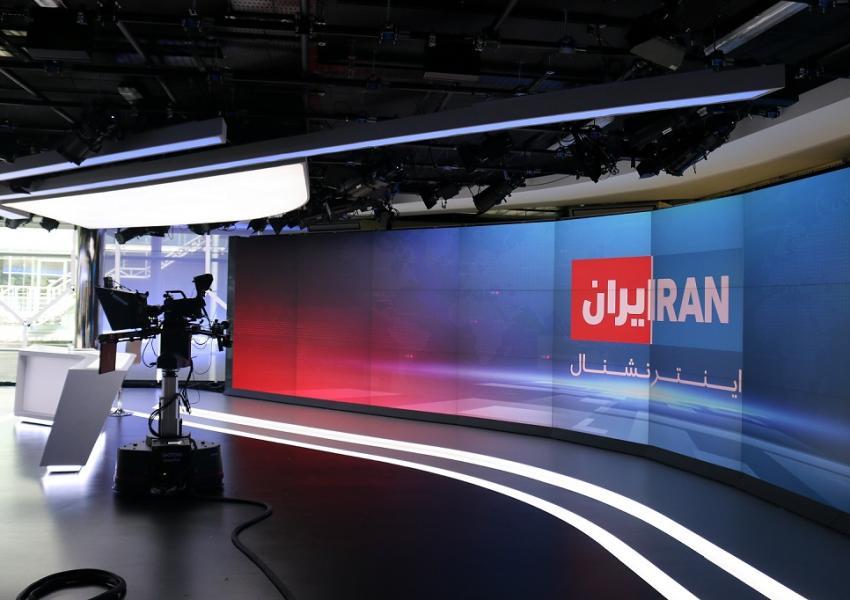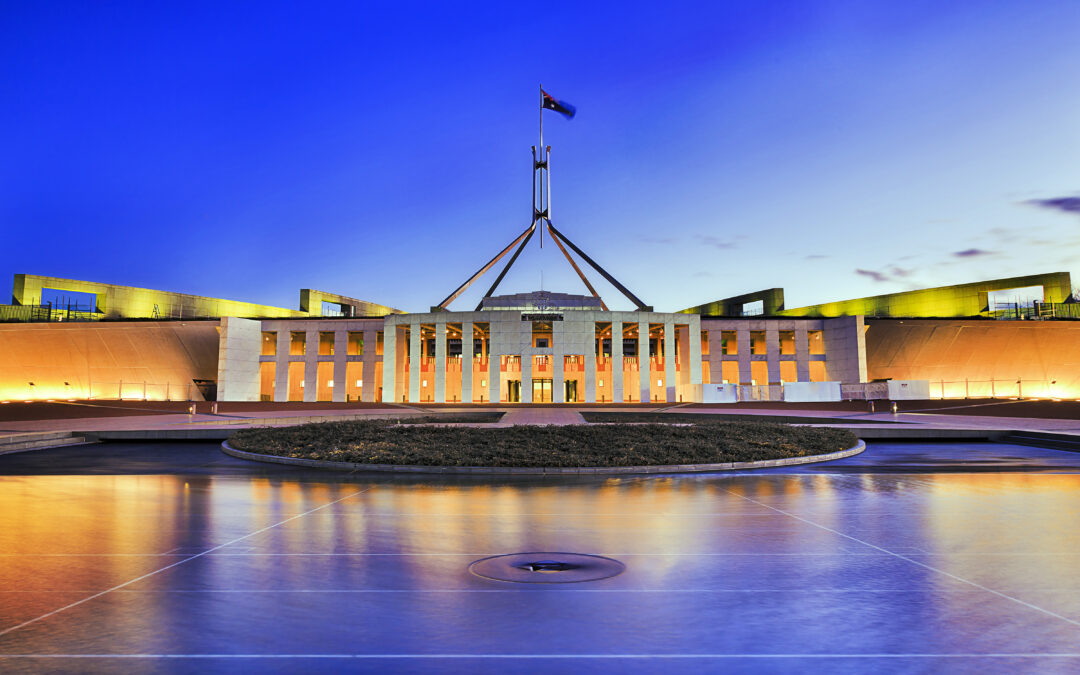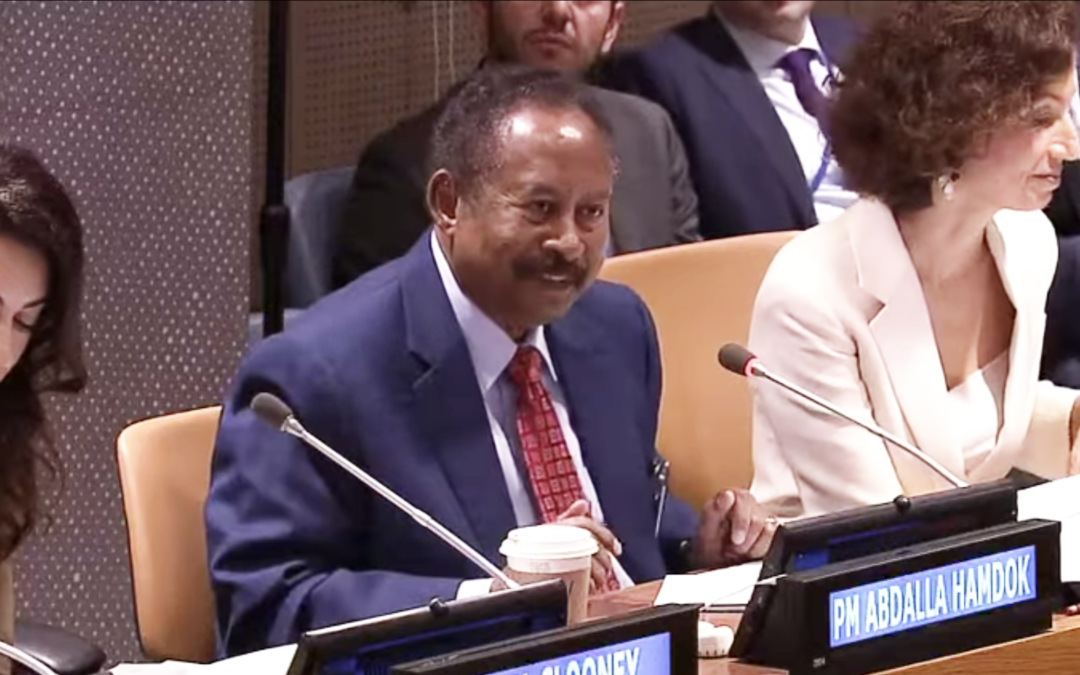
2 January 2020
AIB launches new online look
As we enter the 2020s, the Association for International Broadcasting has updated its website to a more contemporary theme. At the same time, we have streamlined some of the content to make navigation easier with the most relevant information made more accessible with fewer clicks.
“Changing a website is a major undertaking for any organisation,” commented Clare Dance, AIB Secretariat Co-ordinator. “We’ve carried out a full-scale review of the site and its appearance, and over the New Year period we have carried out all the design and content changes in-house. We welcome feedback from our website users who should now find the site much more flexible as it’s designed to work on all devices, from large desktop screens to mobile phones.”
There may be some issues of failed links as we continue to upgrade and improve the site and we’d welcome hearing about any problems that users discover as they access the site.

27 November 2019
Iranian government’s action mirrors attack on BBC Persian
The Association for International Broadcasting today condemned the freezing of assets of journalists working for London-based Iran International by the Iranian authorities.
The move, reported by the Fars news agency in Tehran, imposes legal restrictions on journalists working at Iran International, the Persian-language TV network that broadcasts news, current affairs and feature programmes from its headquarters in west London. The asset freeze come in the wake of the Iranian government’s failure to stop reporting by Iran International of the crack down on protestors in the country following the threefold rise in petrol prices.
The asset freeze and legal restrictions mirror the actions taken by the Iranian authorities against BBC Persian journalists and staff based in the United Kingdom two years ago. The scale and severity of the Iranian authorities’ actions led the BBC to file a complaint at the United Nations, the first time the Corporation had taken such a step.
In addition to the asset freeze, Iran International’s satellite television signal has been jammed as the authorities in Tehran attempt to prevent viewers in Iran watch the channel.
 “We are appalled by this latest attempt by Iran’s government to silence journalists who are reporting news from and about Iran,” said Simon Spanswick, Chief Executive of the Association for International Broadcasting. “The Iranian government is once again trying to use a jurisprudence dragnet to intimidate journalists and their families. At the same time, it is seeking to restrict access to news and information by its own citizens. The Association for International Broadcasting and its Members – who collectively serve audiences of over one billion people every week – call on the Iranian government to immediately cease from this act of harassment and intimidation and to lift the asset freezes immediately. The jamming of the channel’s signal must also end.”
“We are appalled by this latest attempt by Iran’s government to silence journalists who are reporting news from and about Iran,” said Simon Spanswick, Chief Executive of the Association for International Broadcasting. “The Iranian government is once again trying to use a jurisprudence dragnet to intimidate journalists and their families. At the same time, it is seeking to restrict access to news and information by its own citizens. The Association for International Broadcasting and its Members – who collectively serve audiences of over one billion people every week – call on the Iranian government to immediately cease from this act of harassment and intimidation and to lift the asset freezes immediately. The jamming of the channel’s signal must also end.”
In March 2019, the UN Special Rapporteur on Iran deplored the harassment of BBC Persian staff and reiterated the seriousness of the persecution of BBC staff, which included the publication of fake and defamatory news to undermine the reputation of BBC Persian journalists.
The Iranian authorities ban both Iran International and BBC Persian in the country. Despite the restrictions, both broadcasters reach significant numbers of people in the country, counted in the millions.
The AIB is supporting its Members around the world through its Media Freedom Initiative that seeks to increase the cost of infringements of media freedom to governments and other actors.
9 October 2019
As part of its continuing international media freedom initiative, the AIB is hosting a meeting in London on 7 November 2019 to bring together AIB Members and the wider media industry to discuss this crucially important subject.
The event is designed to allow participants to share information and experiences regarding challenges to media freedom, and to contribute to the AIB media freedom initiative work plan. There will be the opportunity to talk with a senior representative of the UK Foreign & Commonwealth Office that co-hosted the Global Conference on Media Freedom with Canada in July and hear plans for the continuing UK campaign.
The meeting is taking place at the kind invitation of Doughty Street Chambers and is supported by Al Jazeera Media Network. The outline agenda appears below, and you can apply to attend at: https://forms.gle/KMMTdjNxYmior3BG8.
Contact the AIB Secretariat for any additional information.
Media Freedom Meeting | 7 November 2019
Doughty Street Chambers, 54 Doughty Street, London WC1N 2LS
Outline agenda
1030 Arrival, networking coffee
1100 Introductions and outline of objectives
- Doughty Street Chambers
- Association for International Broadcasting
- Al Jazeera Media Network
1120 Media Freedom Global Brief – current challenges, notable improvements
- BBC Monitoring – the disinformation sphere and the world’s most hostile media freedom territories
1215 In perspective – real cases
The AIB work plan is based on a very real need to develop awareness of the importance of media freedom amongst the public in territories worldwide. But it’s an abstract notion – and it’s abstract even for those working in media organisations. This session will hear testimony from people who have been directly impacted by attempts to stifle media freedom.
Speakers include: John Battle, Head of Compliance, ITN (UK)
1315 Buffet lunch and networking
1410 The international campaign for media freedom – achievements; next steps
- Mohammed Shokat, Co-ordinator, Media Freedom, UK Foreign & Commonwealth Office
- Canada Foreign Affairs representative
1445 The work of the AIB and its Members
- Introduction of the Steering Group
- Summary of the AIB’s work plan and achievements to date
- Opportunities for collaboration and development
- Timetable for continuing work
- Involving other organisations and sectors – opportunities with the ad sector, etc.
1500 Discussion, next steps and round up
1545 Close; tea and networking

2 October 2019
The Association for International Broadcasting has made a submission to the Australian Senate Standing Committee on Environment and Communications Inquiry into Press Freedom.
This Inquiry, running in parallel with the Australian Parliamentary Joint Committee on Intelligence and Security inquiry into the impact of the exercise of law enforcement and intelligence powers on the freedom of the press, is gathering submissions from key stakeholders in the media industry and others with an interest in the highly topical issue of media freedom in Australia.
 “We have been pleased to be able to submit evidence to this important inquiry in Australia,” commented Simon Spanswick, Chief Executive of the Association for International Broadcasting. “The AIB was appalled by the raids undertaken by the Australian Federal Police on the ABC and on the home of a News Corp journalist earlier this year. The raids marked a low point in media freedom in Australia and had a chilling effect on the robust journalism of which Australians have been rightly proud. We are looking forward to helping the Senate Committee and the Parliamentary Committee in their work on this vitally important area in which Australia should be leading the Indo-Pacific region.”
“We have been pleased to be able to submit evidence to this important inquiry in Australia,” commented Simon Spanswick, Chief Executive of the Association for International Broadcasting. “The AIB was appalled by the raids undertaken by the Australian Federal Police on the ABC and on the home of a News Corp journalist earlier this year. The raids marked a low point in media freedom in Australia and had a chilling effect on the robust journalism of which Australians have been rightly proud. We are looking forward to helping the Senate Committee and the Parliamentary Committee in their work on this vitally important area in which Australia should be leading the Indo-Pacific region.”
The two submissions have been prepared in conjunction with London-based Doughty Street Chambers, a set of internationally-renowned barristers with a reputation for excellence, specialising in areas of law across multiple jurisdictions, often in cases which have a strong emphasis on human rights and civil liberties. Barristers Caoilfhionn Gallagher QC and Jennifer Robinson are acting for the AIB.
Lead barrister Caoilfhionn Gallagher QC said: “The heavy-handed way in which the Australian authorities targeted major media companies is almost unprecedented in a major democracy. The evidence that we’ve made on behalf of the AIB to the Australian Senate provides global perspective on the issue of Australia’s media freedom. The submission includes recommendations on best practice drawn from our extensive experience of media law in other jurisdictions that could be usefully applied in the Australian context, protecting journalism and journalists, as well as state security. We urge the Senate to make use of the AIB submission as it works to safeguard freedom of the media.”
The AIB has also made a submission to the Parliamentary Joint Committee on Intelligence and Security inquiry which can be read here: http://cfb.d5c.myftpupload.com/Media-Freedom/AIB-submission-PJCIS-260719.pdf.
On 7 November, the AIB will hold its second media freedom conference in London at Doughty Street Chambers with the support of Al Jazeera Media Network. This one-day event will bring together AIB Members and the wider media industry to hear evidence from broadcasters on how their operations are being impacted by restrictions on media freedom, and will explore ways to expand the AIB’s international work programme on media freedom. To register for this event, go to: https://forms.gle/wY26Kv37zLc4rfX9A.

30 September 2019
Sudan‘s newly appointed Prime Minister, Abdalla Hamdok, has told a meeting at the United Nations that international broadcasters are welcome back in the country to help build a democratic and free society.
At a UK-organised ministerial meeting on media freedom held at the UN headquarters in New York on 25 September, Hamdok said that he “grew up in Sudan in the 60s and 70s, where the BBC radio was probably the only source of international information for people. And the paradox, years after that, [is that the] BBC was prohibited from broadcasting from Sudan and people were not having access to it.”
He confirmed that the BBC was now allowed back onto FM in the country after an absence of a number of years. He also said that Monte Carlo Doualiya has been restored and that Al Jazeera which had also been banned was now back in the country. Not only were the broadcasters back on the air, but the country’s government is “very determined to create an environment that is open and allow journalists unfettered access to information but also to reporting, anywhere.
“This is actually not giving them any kind of privilege. It is good for our people. Free society, free people can only be productive, can be useful in their own lives but also for society. So I’m doing it precisely because of that.”
“The announcement by Sudan’s Prime Minister confirming the opening up of the country’s airwaves is highly positive,” said AIB Chief Executive Simon Spanswick. “It is good that AIB Members including the BBC, Al Jazeera and Monte Carlo Doualiya are now permitted to broadcast across the nation. The additional commitment to allowing journalists to report from the entire country is an immense step forward for the country and we look forward to supporting the Sudanese government and the international media community to develop Sudan’s media industry.”
The UN meeting, chaired by the UK’s special envoy on media freedom, Amal Clooney, also heard from Lord Ahmad, Foreign Office Minister, and Audrey Azoulay, UNESCO Director-General, all of whom spoke about the increasing need for media freedom globally and the Media Freedom Coalition to which 32 governments have agreed to join.

18 September 2019
Productions across TV, radio and online from 20 countries have made the final cut
The shortlist for the AIBs 2019 – the 15th annual competition for the world’s best factual productions – has been published by the Association for International Broadcasting.
Work from over 50 companies has been selected to go through to the final judging by the international jury, with an immensely wide range of subjects covered. With 19 categories covering sport, daily journalism, human interest and much more, the AIBs are one of the most comprehensive international awards for factual producers.
“We have had the largest field of entries in the 15-year history of the AIBs,” says Simon Spanswick, chief executive of the Association for International Broadcasting. “Over 400 hours of work was submitted to this year’s competition, from production companies and broadcasters on every continent. The standard of work was extremely high and selecting the entries to go through to the final judging was a very real challenge. With reports and investigations covering child abuse, war crimes and natural disasters through to lighter subjects such as microscopic art, the subject range is immense.”
The shortlist of over 100 entries is now in front of the international jury of 59 programme makers, broadcast executives and other experts who will evaluate all the work. The winners in the 19 categories will be announced at the AIBs gala dinner in London on 6 November, attended by guests from all over the world. Bloomberg Television and Radio anchor Nerja Ćehić will host the awards, and Rana Rahimpour of BBC Persian will present the “in conversation” segment.
“The AIBs competition does not discriminate,” continues Spanswick, “between productions from large-scale broadcast networks or small-scale production companies, nor between productions in English or in any other language. It’s a level playing field and over the past decade and a half, prizes have been won by individual producers as well as by the broadcasting giants. That’s what makes this contest so appealing, and has gained its global reputation.”
Full details of the AIBs are at the special awards website: http://theaibs.tv. Highlights of the 2018 awards are online at: https://vimeo.com/304404353.



 “We are appalled by this latest attempt by Iran’s government to silence journalists who are reporting news from and about Iran,” said Simon Spanswick, Chief Executive of the Association for International Broadcasting. “The Iranian government is once again trying to use a jurisprudence dragnet to intimidate journalists and their families. At the same time, it is seeking to restrict access to news and information by its own citizens. The Association for International Broadcasting and its Members – who collectively serve audiences of over one billion people every week – call on the Iranian government to immediately cease from this act of harassment and intimidation and to lift the asset freezes immediately. The jamming of the channel’s signal must also end.”
“We are appalled by this latest attempt by Iran’s government to silence journalists who are reporting news from and about Iran,” said Simon Spanswick, Chief Executive of the Association for International Broadcasting. “The Iranian government is once again trying to use a jurisprudence dragnet to intimidate journalists and their families. At the same time, it is seeking to restrict access to news and information by its own citizens. The Association for International Broadcasting and its Members – who collectively serve audiences of over one billion people every week – call on the Iranian government to immediately cease from this act of harassment and intimidation and to lift the asset freezes immediately. The jamming of the channel’s signal must also end.”
 “We have been pleased to be able to submit evidence to this important inquiry in Australia,” commented Simon Spanswick, Chief Executive of the Association for International Broadcasting. “The AIB was appalled by the raids undertaken by the Australian Federal Police on the ABC and on the home of a News Corp journalist earlier this year. The raids marked a low point in media freedom in Australia and had a chilling effect on the robust journalism of which Australians have been rightly proud. We are looking forward to helping the Senate Committee and the Parliamentary Committee in their work on this vitally important area in which Australia should be leading the Indo-Pacific region.”
“We have been pleased to be able to submit evidence to this important inquiry in Australia,” commented Simon Spanswick, Chief Executive of the Association for International Broadcasting. “The AIB was appalled by the raids undertaken by the Australian Federal Police on the ABC and on the home of a News Corp journalist earlier this year. The raids marked a low point in media freedom in Australia and had a chilling effect on the robust journalism of which Australians have been rightly proud. We are looking forward to helping the Senate Committee and the Parliamentary Committee in their work on this vitally important area in which Australia should be leading the Indo-Pacific region.”
